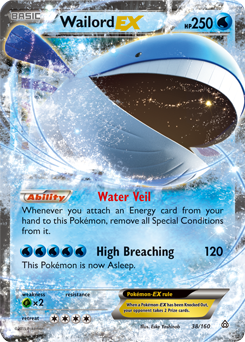Studying Up — Understanding Decks in Expanded and Turbo Dark 2.0
Hello everyone, it’s good to be back writing for PokeBeach. I’ll be sharing my thoughts on the Expanded format in preparation for Richmond Regionals and discussing one of the format’s best decks: Turbo Dark.
While I did not attend Knoxville Regionals due to university, I was able to jump the gun, so to speak, and convert this extra time into playtesting the Expanded format. To the average player, Expanded seems like an expensive, complicated, and confusing pool of cards—after all, cards since 2011 are legal. Before we jump into what it is like now, rewind time along with me for a second.
A History Lesson

What this translates into can be a beautiful thing—my favorite formats in recent years have been Expanded. However, too many cards and strategies are dangerous and harrowing. The result is a TCPi intervention where certain cards are banned. Although commonplace now, bans were unheard of until 2015, when Lysandre's Trump Card was banned in time for the US National Championship. Psychologically, this ban had a huge effect on the game beyond limiting certain oppressive strategies. Paraphrasing the best Pokemon player ever, Jason Klaczynski, players and their decks were vulnerable to deal with limited resources and did not optimally conserve resources for key turns.
Indeed, the dark horse of the tournament, Wailord-EX Stall, was able to abuse the lack of preparation, finishing second when falling to Jason in the finals.
Jason himself was worried about the matchup. He did not equip his Seismitoad-EX / Garbodor deck for a Stall concept; either he was not aware of it or because he wanted to maximize the efficiency of the rest of his 60 cards in his deck. His come-from-behind victory was an upset akin to the 2008 Patriots vs Giants Super Bowl. Jason had no way to defeat the mighty Wailord-EX given his deck had too few Energy cards or ways to retreat, which Wailord-EX would take advantage of. However, after playing a long first game, and the second game ending with about a three minute time window having taken five Prize cards. Despite having no way of winning this game, the top cut match rules stated that if either player had taken four Prize cards by the end of time, that player “won” that game, and counted it towards the total. Jason was then able to win an electrifying sudden death match, adding the National Champion title to his extensive resume.
Expanded Format Analysis
The world keeps spinning, and the Pokemon Card Laboratory in Japan keeps creating new Pokemon cards. While we aren't in the same format as Jason was, the lessons learned in that one tournament are relevant today. Thanks to Expanded, Wailord-EX stall was a viable contender last year and knocked me out of Top 8 at Roanoke Regionals. But as cards come and go, the same strategies persist. Here is a list of Pokemon deck “categories” right now:
- Aggressive
- Defensive
- Control
- Stall
- Spread
- One-Prize
- Hit and Run
This concludes the public portion of this article.
If you'd like to continue reading, consider purchasing a PokeBeach premium membership! If you're not completely satisfied with your membership, you can request a full refund within 30 days.
Each week we post high-quality content from some of the game's top players. Our article program isn't a corporate operation, advertising front, or for-profit business. We set our prices so that we can pay the game's top players to write the best content for our subscribers. Each article topic is carefully selected, goes through multiple drafts, and is touched up by our editors. We take great pride in our program!

